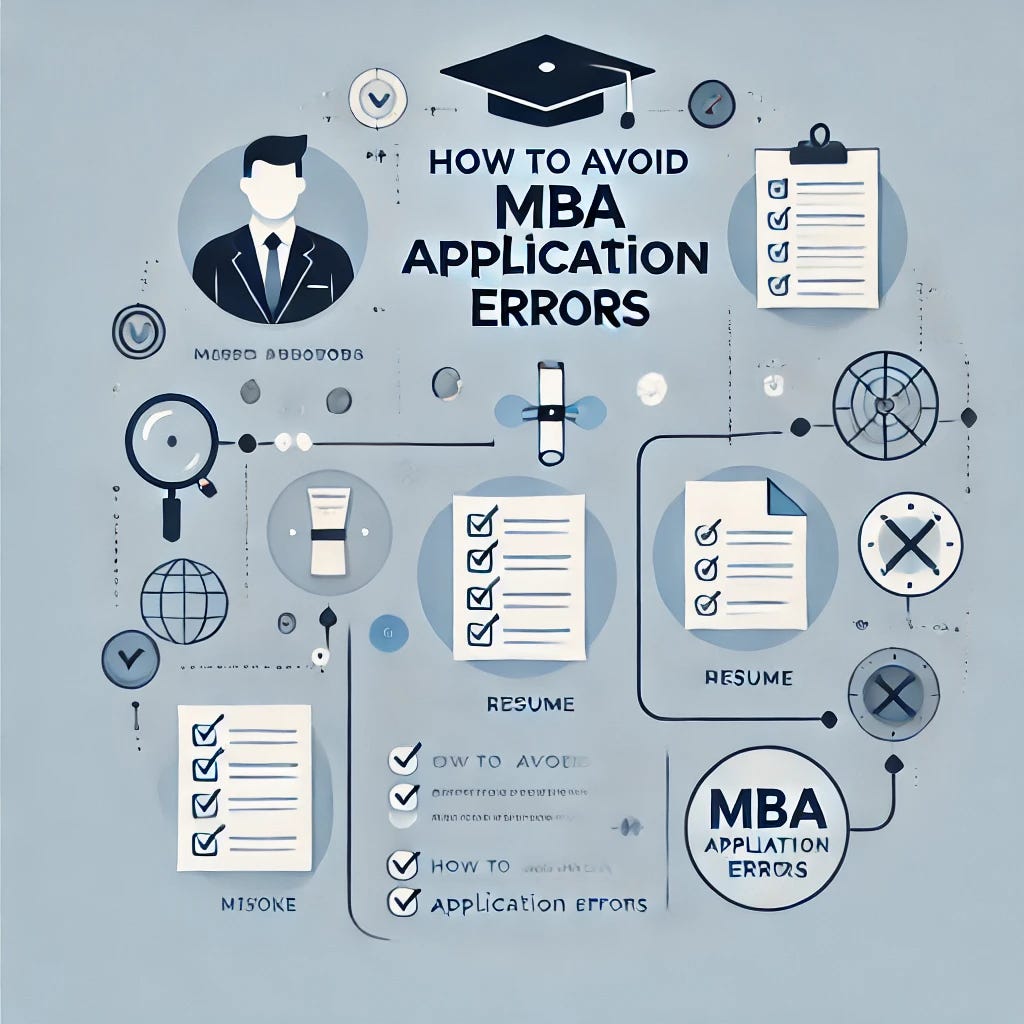The Biggest Application Mistakes Japanese MBA Candidates Make—And How to Avoid Them
Common Pitfalls and Winning Strategies for Japanese Applicants
Introduction: Why Japanese Applicants Face Unique Challenges
Many Japanese MBA and grad school applicants have impressive careers but struggle with one critical aspect—selling themselves. Admissions committees appreciate your work ethic and test scores, but they’re looking for leaders with a clear vision, personal impact, and a compelling story. They also want students who will bring diverse perspectives to the classroom, contribute to the school community, and have interests beyond work—whether it’s entrepreneurship, volunteer work, or unique personal experiences.
In my 20+ years of coaching applicants, I’ve seen—and helped clients avoid—the same costly mistakes time and again. Let’s make sure you don’t fall into these traps.
Mistake #1: Playing It Too Safe in Essays
Why It’s a Problem
Many Japanese applicants write polite, professional, and painfully generic essays. But admissions officers aren’t just looking for accomplished professionals—they want real people with real stories.
How to Avoid It
Make it personal – What life events shaped your career goals?
Show vulnerability – Have you faced failure? What did you learn?
Tell a story – Instead of writing, "I improved efficiency by 20%," describe the challenge, your actions, and the impact.
✅ Example:
❌ “I was promoted to manager after leading a major project.”
✔️ “At 28, I led a high-stakes project and doubted myself at first. But by listening to my team and refining our strategy, we exceeded our goals—earning me a promotion and a crash course in leadership.”
Mistake #2: Being Too Humble
Why It’s a Problem
Many Japanese applicants downplay their accomplishments because of cultural norms. But in international applications, if you don’t advocate for yourself, no one else will.
How to Avoid It
Use ‘I’ instead of ‘we’ – Admissions committees want to know what you did.
Quantify your impact – "I led a team of five engineers and improved efficiency by 30%."
Think of self-promotion as proof, not bragging, especially when you are stating facts.
✅ Example:
❌ “My team successfully launched a new service.”
✔️ “I led a cross-functional team of six and secured a $2M contract by developing a new service.”
Mistake #3: Choosing the Wrong Recommender
Why It’s a Problem
Some applicants ask big-name bosses (e.g., company president) for recommendations, even if that person barely knows them. A vague, generic letter will hurt your chances.
How to Avoid It
Choose someone who knows your work well, not just someone important.
Provide key points to highlight your strengths.
Make sure they understand what the school values.
✅ Example:
❌ “Asuka is hardworking and reliable. She will be a great asset to your program.”
✔️ “Asuka took initiative on a struggling project, restructured the workflow, and reduced delays by 40%. Her leadership and problem-solving will make her a strong MBA candidate.”
Mistake #4: Focusing Too Much on “What” Instead of “Why”
Why It’s a Problem
Many candidates list what they’ve done (e.g., job titles, promotions) but fail to explain why they made those choices. Schools want to understand your motivations and long-term vision.
How to Avoid It
Connect past experiences to future goals.
Explain why an MBA is essential to your career path.
Show passion—schools can tell if you’re just applying for the brand name.
✅ Example:
❌ “I worked in finance for five years and now want to transition to consulting.”
✔️ “After five years in finance, I realized I love solving business challenges but need broader industry exposure. An MBA will give me the strategic skills to pivot into consulting, where I can apply my problem-solving expertise on a larger scale.”
Mistake #5: Underestimating the Importance of Networking
Why It’s a Problem
Too many applicants submit their materials and hope for the best. But top schools expect candidates to engage—through networking, info sessions, and alumni outreach.
How to Avoid It
Reach out to alumni on LinkedIn or at school events.
Visit Campuses, or if you can’t participate in virtual tours.
Attend MBA fairs when they comet to Japan.
Mention specific conversations with students/alumni in your essays.
Ask thoughtful questions about the program.
✅ Example:
❌ “I am interested in Kellogg’s strong leadership program.”
✔️ “After speaking with two Kellogg alumni, I was impressed by how the program fosters collaborative leadership. One alum shared how the Leadership Lab helped them develop real-world team management skills, which aligns with my career goals.”
Conclusion: Strengthen Your Application by Avoiding These Pitfalls
Skipping these mistakes will dramatically increase your chances of admission. Take the time to:
✅ Write authentic essays
✅ Pick strong recommenders
✅ Engage with your target schools
And if you need personalized feedback, reach out! I’ve helped hundreds of Japanese applicants get into top programs worldwide. Let’s make sure you’re next. 🚀
📩 Free Strategy Consultation Inquiries: info@roahconsulting.jp
🌎 Roah Consulting: Turning Dream Schools into Reality Since 2009




